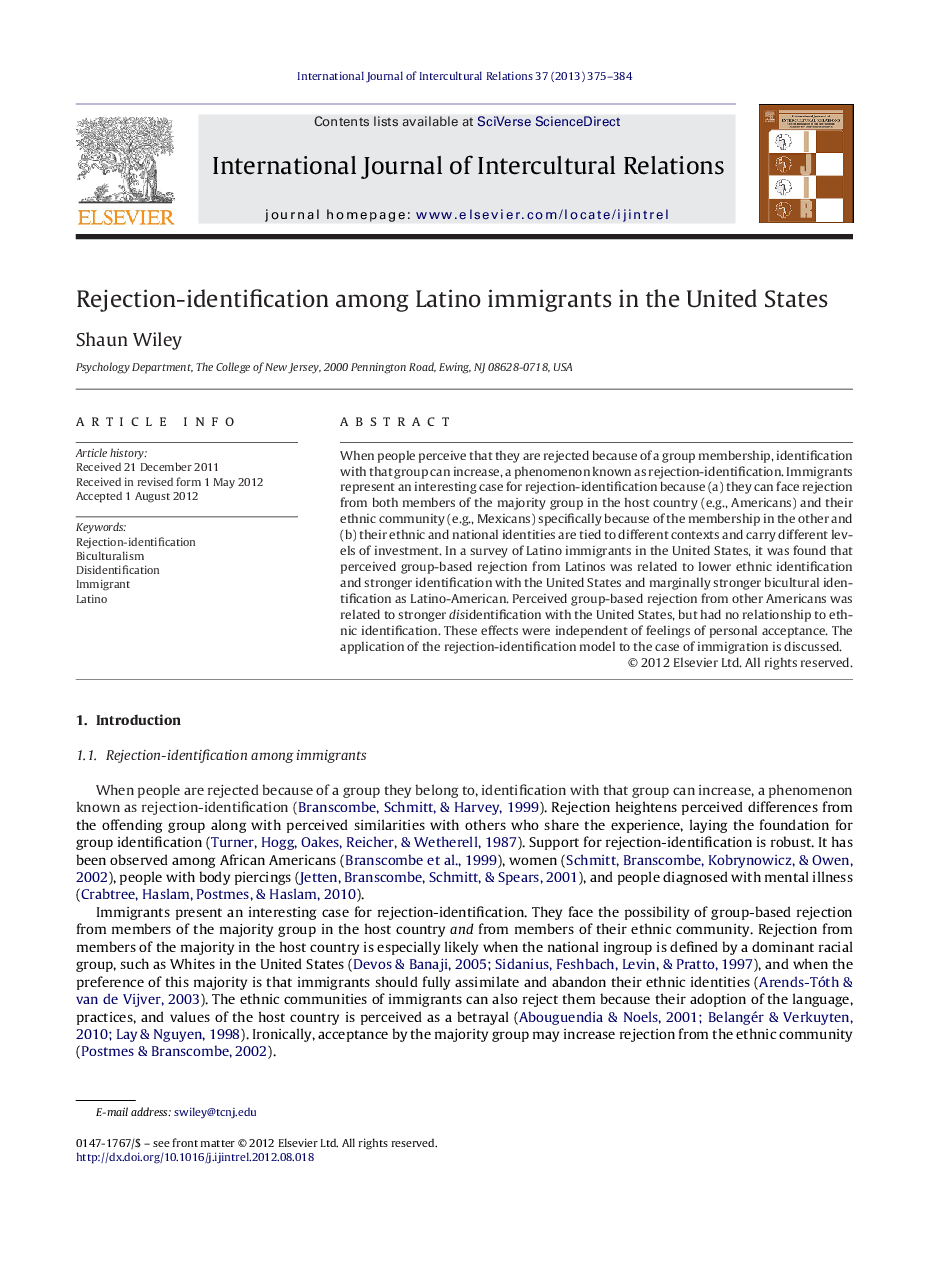| Article ID | Journal | Published Year | Pages | File Type |
|---|---|---|---|---|
| 947191 | International Journal of Intercultural Relations | 2013 | 10 Pages |
When people perceive that they are rejected because of a group membership, identification with that group can increase, a phenomenon known as rejection-identification. Immigrants represent an interesting case for rejection-identification because (a) they can face rejection from both members of the majority group in the host country (e.g., Americans) and their ethnic community (e.g., Mexicans) specifically because of the membership in the other and (b) their ethnic and national identities are tied to different contexts and carry different levels of investment. In a survey of Latino immigrants in the United States, it was found that perceived group-based rejection from Latinos was related to lower ethnic identification and stronger identification with the United States and marginally stronger bicultural identification as Latino-American. Perceived group-based rejection from other Americans was related to stronger disidentification with the United States, but had no relationship to ethnic identification. These effects were independent of feelings of personal acceptance. The application of the rejection-identification model to the case of immigration is discussed.
► Rejection from Americans and Latinos were examined among Latino immigrants to the United States. ► Rejection from Americans was tied to stronger disidentification with the United States. ► Rejection from Latinos was related to weaker identification with them. ► Rejection from Latinos was related to and stronger American and bicultural identification.
